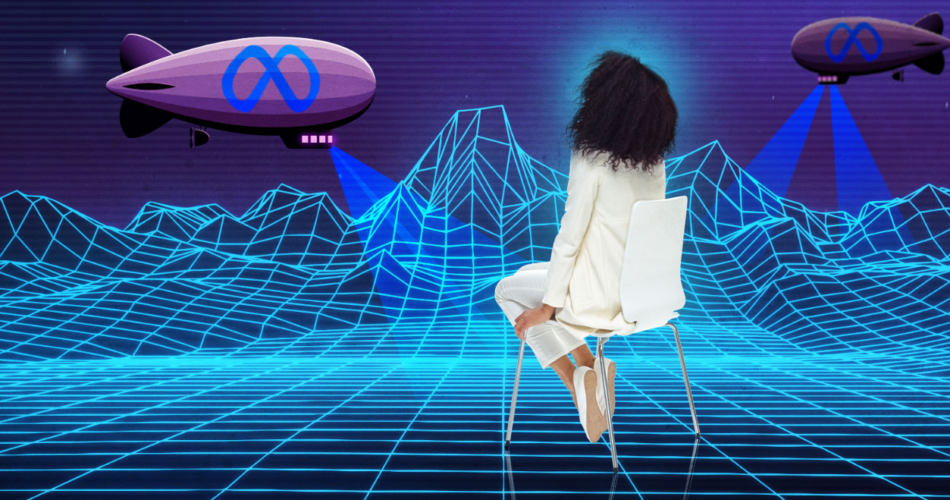The term “Metaverse” has become one of the most buzzworthy topics in technology, business, and culture. From tech giants like Meta (formerly Facebook) to gaming companies and startups, everyone is racing to build the next iteration of the internet—a fully immersive, interconnected digital universe. But what exactly is the Metaverse, and why is it generating so much excitement? This article dives deep into the concept of the Metaverse, its key components, applications, challenges, and what the future holds.
Contents
What is the Metaverse?

The Metaverse is a collective virtual shared space, created by the convergence of virtually enhanced physical reality, augmented reality (AR), and the internet. It is a fully immersive digital environment where users can interact with each other and digital objects in real-time. Think of it as a blend of the physical and digital worlds, where you can work, play, socialize, and even own virtual assets.
The term “Metaverse” was first coined by Neal Stephenson in his 1992 science fiction novel Snow Crash. Today, it represents a vision of the future where the boundaries between the real and virtual worlds blur.
Key Components of the Metaverse
The Metaverse is built on several foundational technologies and concepts:
1. Virtual Reality (VR) and Augmented Reality (AR)
- VR provides fully immersive digital experiences, while AR overlays digital elements onto the physical world.
- Devices like Oculus Quest (VR) and Microsoft HoloLens (AR) are paving the way for Metaverse experiences.
2. Blockchain and Digital Assets
- Blockchain enables ownership of digital assets through tokens, cryptocurrencies, and NFTs (Non-Fungible Tokens).
- Examples: Virtual real estate in Decentraland, digital art as NFTs.
3. Artificial Intelligence (AI)
- AI powers realistic avatars, chatbots, and personalized experiences in the Metaverse.
- Use cases: AI-driven NPCs (non-player characters) in games, virtual assistants.
4. 3D Modeling and Spatial Computing
- 3D modeling creates lifelike environments and objects, while spatial computing enables interaction with these elements.
- Tools: Unity, Unreal Engine, and Blender.
5. Interoperability
- The Metaverse relies on seamless interaction between different platforms, devices, and virtual worlds.
- Standards like OpenXR and initiatives by the Metaverse Standards Forum aim to achieve this.
Applications of the Metaverse
The Metaverse has the potential to revolutionize numerous industries. Here are some of the most promising applications:
1. Gaming
- Gaming is the most advanced sector in the Metaverse, with platforms like Roblox, Fortnite, and The Sandbox offering immersive experiences.
- Play-to-earn models allow players to monetize their in-game activities.
2. Social Interaction
- Virtual social platforms like VRChat and Meta’s Horizon Worlds enable users to meet, interact, and collaborate in virtual spaces.
- Virtual concerts and events (e.g., Travis Scott’s Fortnite concert) are becoming increasingly popular.
3. Work and Collaboration
- The Metaverse is transforming remote work with virtual offices and meeting spaces.
- Tools like Microsoft Mesh and Spatial enable immersive collaboration.
4. Education and Training
- Virtual classrooms and training simulations offer interactive and engaging learning experiences.
- Examples: Medical training in VR, virtual field trips for students.
5. E-Commerce and Retail
- Virtual stores and showrooms allow users to browse and purchase products in immersive environments.
- Brands like Gucci and Nike are already experimenting with virtual fashion and NFTs.
6. Real Estate
- Virtual real estate is a booming market, with users buying, selling, and developing digital properties.
- Platforms: Decentraland, The Sandbox, and Somnium Space.
7. Healthcare
- The Metaverse can be used for virtual therapy, remote surgeries, and mental health support.
- Example: VR-based exposure therapy for PTSD patients.
Challenges and Concerns
While the Metaverse holds immense potential, it also faces significant challenges:
1. Privacy and Security
- The Metaverse collects vast amounts of user data, raising concerns about privacy and data breaches.
- Solutions: Decentralized identity systems and robust encryption.
2. Accessibility
- High costs of VR/AR devices and internet requirements may limit access for many users.
- Solutions: Affordable hardware and improved connectivity.
3. Regulation
- The lack of clear regulations around virtual assets, content moderation, and user rights poses challenges.
- Solutions: Collaborative frameworks between governments and industry stakeholders.
4. Digital Divide
- Unequal access to technology could exacerbate existing social and economic inequalities.
- Solutions: Initiatives to bridge the digital divide and promote inclusivity.
5. Ethical Concerns
- Issues like addiction, harassment, and the impact on mental health need to be addressed.
- Solutions: Ethical guidelines and user protections.
The Future of the Metaverse
The Metaverse is still in its early stages, but its potential is limitless. Here are some trends to watch:
- Integration with Web3
- The Metaverse will likely integrate with Web3 technologies like blockchain and decentralized applications (dApps), enabling true ownership and interoperability.
- Advancements in Hardware
- Lighter, more affordable, and powerful VR/AR devices will drive adoption.
- AI-Driven Personalization
- AI will create hyper-personalized experiences, from virtual assistants to adaptive environments.
- Corporate Adoption
- More businesses will enter the Metaverse, offering virtual products, services, and experiences.
- Sustainability
- Efforts to reduce the environmental impact of energy-intensive technologies like blockchain and VR will gain traction.
Conclusion
The Metaverse represents a bold new frontier in technology, offering endless possibilities for innovation and connection. While challenges remain, the rapid pace of development suggests that the Metaverse will play a significant role in shaping the future of how we live, work, and interact. Whether you’re a tech enthusiast, business leader, or curious observer, now is the time to explore and engage with this transformative concept.
